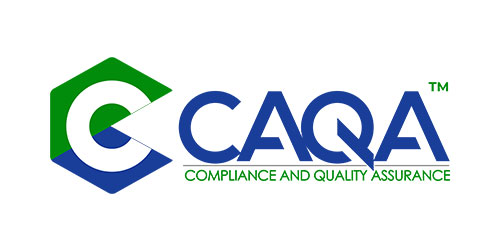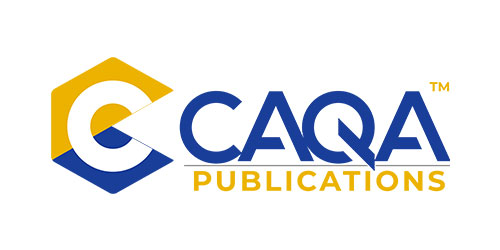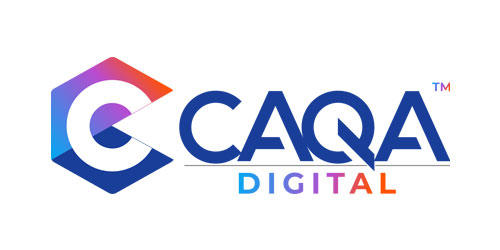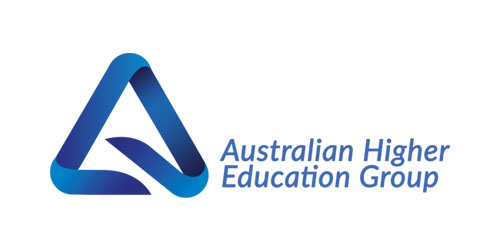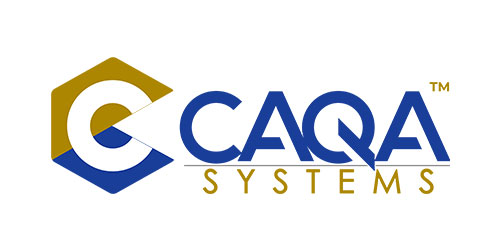
Converting the audit quality practices to system-centred rather than individual-auditor-centred
When we talk about “audit quality practises,” we talk about the factors that influence the outcomes of audits conducted on behalf of a regulatory body, such as the behaviour of auditors, the decisions they make, the approaches they take and the way they act in order to ensure that audit outcomes are appropriate, suitable, relevant, and based on facts rather than personal opinions and biases against an individual or organisation.
In this article, we discuss a number of the components of audit quality practises that are important to consider.
Standards to audit the regulatory body and its officers
The million-dollar questions are: who audits the auditors, and can they achieve consistency in their decisions? Despite the fact that some government agencies are auditing some of their actions, the vast majority of the judgments and practises of the regulatory body go unnoticed and unanswered to anyone. A clear set of standards should be established for the regulatory body, and clear guidelines should be developed for their auditors. The audit practices, boundaries and guidelines should also be clearly defined.
External complaints resolution department
How can genuine complaints be resolved when the freedom of information (FOI) and complaints handling are controlled by the same individual and department within ASQA? Yes, these approaches are acceptable for a brief period of time in order to conceal malpractices, but for how long will they remain hidden from the rest of the industry? How can a regulatory agency establish confidence with its stakeholders if there is no credible external entity to evaluate and review its operations and procedures? On paper, the Ombudsman is there to investigate their decisions; yet, how many times have they made decisions that were against the regulating body? Where are those statistics and how do those decisions make the regulatory body change their practices? Complaints and feedback from stakeholders are opportunities to improve the system, framework, and processes. If you ignore investigating complaints and feedback from stakeholders or just have blind faith in what your auditors tell you, then you will never be able to improve any practices.
Professional development workshops for auditors
Workshops for professional development are essential for everyone in the sector, and auditors are no exception. As representatives of a government agency, they hold a position of authority and influence. As a result, they require far more professional development and personal development sessions than anybody else working in the education and training industry. Regular professional development workshops would assist them in understanding how they should strictly adhere to regulatory rules rather than rely on their own personal judgments, prejudices, and opinions to make audit decisions.
Internal validation and moderation meetings
Internal validation and moderation meetings for audit outcomes and practices are required in order to establish high-quality audit practices. Decisions should be made in accordance with what the system suggests, rather than what the individual recommends. In order to train the auditors on what can and cannot be accepted in a black and white manner, set templates, policies, practices and protocols should be used. The outcome of these moderation meetings should be shared with the industry in order to inform them of what was discussed, which tactics were changed, and why and how the strategies will affect the training organisations in question. Every time a new auditor audits the processes and documentation of a training organisation, the results should not be a surprise to the training organisation or consultants representing them in the audit.
Audit reports
The audit reports should not only cover non-compliances, but they should also include where the compliance has been found. In a number of instances, the same auditor has made different judgments over a period of a few weeks, and this type of activity should be considered unacceptable by any regulatory authority.
When it comes to audit reports, the most important purpose is to have reasonable certainty that the report as a whole is free of any misrepresentation and errors; and to ensure that any noncompliance issues that are identified are clearly reported to all parties through the audit report.
In order to ensure that all stakeholders have faith in the system and are fully informed, the quality of audit reports is vital to an effective and efficient regulatory system. The purpose of audit quality procedures is to instil confidence in the correctness and dependability of audit practises. It is vital that audit quality and consistency of audit execution be consistently enhanced in order to retain public confidence in the regulatory system.
These are just a few of the critical improvements that must be included in the new regulatory framework to ensure its success. What other changes would you like to see implemented in audit activities? Write to us and tell us about your experiences interacting with the regulatory body and your thoughts on the matter.
We are interested in listening to your suggestions, feedback and stories, please email us at info@caqa.com.au.
3 years ago
Related News

11 May, 2018
Industry Expert reveals lessons learnt from 65+ ASQA Audits
Sukh Sandhu’s Interview conducted by EduTemps During his 20 years in the VET and Higher Education sector, Sukh Sandhu has witnessed a radical shift in compliance landscape. Here he shares his experience on how VET organisations can adapt and thrive in a challenging environment. Few industry professionals have seen the revolution in VET compliance as […]
7 years ago

10 September, 2018
Assessment issues that may impact your RTO audit (Part 1)
It is important to look into ASQAs 2017 report that shows: Around 72% of RTOs FAIL audit on Assessment Approximately 50% of those FAIL to be able to rectify their assessment tools on resubmission under the OLD audit mode According to the new audit model: There may be NO opportunity to rectify critical non-compliances Initial […]
6 years ago

10 September, 2018
Different phases of assessment and learner validation processes (Part 1)
In this article, we will discuss different phases of validation processes that you should be following in your RTO to ensure you meet regulatory requirements and industry expectations. Validation of RTO assessment resources You must validate all your assessment resources to ensure they meet the principles of assessment, rules of evidence, training package requirements, regulatory […]
6 years ago
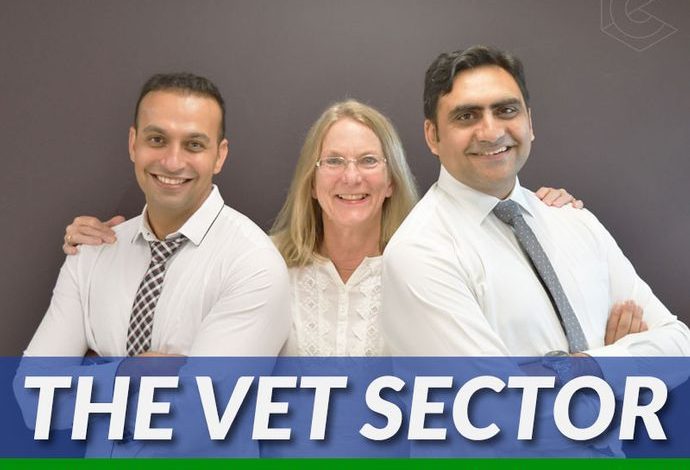
11 September, 2018
The VET Sector Newsletter – Edition 1, April 2018
The official Newsletter from Compliance and Quality Assurance (CAQA) OUR FIRST NEWSLETTER By Anna Haranas Welcome to The VET Sector, our official newsletter for the Australian VET education and training sector. This monthly publication is an initiative of the team at Compliance And Quality Assurance (CAQA). The newsletter will be a vehicle for news and […]
6 years ago

11 September, 2018
Contextualising assessment resources (Part 1)
Contextualisation of training packages, accredited curricula and learning resources can be achieved without compromising the Standards for Registered Training Organisations (RTOs) 2015. Contextualisation is the addition of industry-specific information to tailor the Standards for Registered Training Organisations (RTOs) 2015 to reflect the immediate operating context and thereby increase its relevance for the learner. Contextualisation is […]
6 years ago

9 October, 2018
Assessment issues that may impact your RTO audit (Part 2)
This is Part 2 continuing from the previous newsletter. As discussed in Part 1 of this article, there are a number of assessment-related issues that may affect your audit outcome. You should ensure your assessment resources, therefore, meet the following criteria: The context and conditions of assessment. For example, an assessment tool could be developed to cater […]
6 years ago

9 October, 2018
Different phases of assessment and learner validation processes (Part 2)
This is Part 2 of the article, where we are discussing the different phases of the validation processes an RTO should be following to ensure you meet regulatory requirements and industry expectations. In the previous article, we discussed the following regarding the validation of assessment resources: Explanation of assessment validation Typical benchmarks used during the […]
6 years ago

5 November, 2018
Your trainer and assessor files (Part 1 of 5)
Compliance of your trainer records is a must for any Registered Training Organisation. If you do not know what you are looking for, you will always have difficulty finding it. The purpose of this article is to provide you with the required information and resources to ensure you can audit and review your trainer and […]
6 years ago

5 November, 2018
Internal audits and why they are important (Part 1 of 5)
This is our first article in the series regarding “Internal audits”. Our main intention is to provide you with the required knowledge and skills, and equip you with the necessary resources to ensure you can audit your organisation against quality frameworks and standards effectively and efficiently. What are Internal audits? Internal audits are an […]
6 years ago

5 November, 2018
Different phases of assessment and learner validation processes (Part 3 of 4)
This is Part 3 of the article, where we are discussing the different phases of the validation processes an RTO should be following to ensure they meet regulatory requirements and industry expectations. In the previous articles, we discussed the following regarding the validation of assessment resources: Explanation of assessment validation Typical benchmarks used during the […]
6 years ago

18 March, 2019
Internal audits and why they are important (Part 2 of 5)
In the first part of this series we discussed the following: What are internal audits? What are the benefits of conducting internal audits? What is an audit scope? What is usually included in an RTO internal audit? Who can be an internal auditor? In this part, we will cover the following areas: Compliance costs and […]
6 years ago

10 April, 2019
Internal audits and why they are so important (Part 3 of 5)
In part 1 & 2 of this series we discussed the following: What are internal audits? What are the benefits of conducting internal audits? What is an audit scope? What is usually included in an RTO internal audit? Who can be an internal auditor? Compliance costs and risks in terms of “risk management” The effective […]
6 years ago

10 April, 2019
Your trainer and assessor files (Part 2 of 5)
In the last newsletter (published in November 2018) we discussed the following: Legislative and regulatory requirements Requirements for all trainers and assessors Trainer CVs In part 2 of the series, we will discuss the vocational competency requirements. The quality of your training and assessment is dependent on the skills and knowledge of your trainers and […]
6 years ago

6 May, 2019
Internal audits and why they are so important (Part 4 of 5)
In the first three parts of this series we discussed the following: What are internal audits? What are the benefits of conducting internal audits? What is an audit scope? What is usually included in an RTO internal audit? Who can be an internal auditor? Compliance costs and risks in terms of “risk management” The effective […]
6 years ago

6 May, 2019
Your trainer and assessor files (Part 3 of 5)
In the last newsletter we discussed the following: The definition of vocational competency ASQA Guidelines on “vocational competence” The three C’s of Vocational competency related to demonstrating skills and knowledge in an “industry area” Skills and knowledge in an “industry area” In this part of the series, we will discuss industry currency, vocational education and […]
6 years ago

28 May, 2019
Internal audits and why they are so important (Part 5 of 5)
In the first four parts of this series we discussed the following: What are internal audits? What are the benefits of conducting internal audits? What is an audit scope? What is usually included in an RTO internal audit? Who can be an internal auditor? Compliance costs and risks in terms of “risk management.” The effective […]
5 years ago

28 May, 2019
Your trainer and assessor files (Part 4 of 5)
In the last newsletter, we discussed the following: ASQA Guidelines on “industry currency.” How to stay up to date in terms of “industry currency.” Factors that influence “industry currency.” What is “industry current or currency period.” The definition of vocational education and training currency. Licensing requirements for trainers and assessors. In part 4 of the […]
5 years ago

4 July, 2019
Internal audits and why they are so important (Part 5 of 5)
In the first five parts of this series we discussed the following: What are internal audits? What are the benefits of conducting internal audits? What is an audit scope? What is usually included in an RTO internal audit? Who can be an internal auditor? Compliance costs and risks in terms of “risk management” The effective […]
5 years ago

18 September, 2019
Unpacking ASQA audit reports and files (Part 1)
Let’s look into what is actually going on in the audits and ASQA practices. We are referring here a number of examples from the audits conducted and the matters discussed in the Administrative Appeals Tribunal by the Australian Skills Quality Authority. 1. ASQA Auditor considering online documents on a Google drive as “Student Portal” and […]
5 years ago

1 October, 2019
Unpacking ASQA audit reports and files (Part 3)
Let’s look into what is actually going on in the audits and ASQA practices. This is part 3 of the ongoing series. We are referring here a number of cases from the different audits conducted by the Australian Skills Quality Authority (ASQA). 1. ASQA officers justifying their statements using information that contradicts all documented and […]
5 years ago

18 November, 2019
Unpacking ASQA audit reports and files (Part 4)
This is part 4 of a series. We are referring here to cases from different audits conducted by the Australian Skills Quality Authority (ASQA). 1. Units made compliant, qualifications become non-compliant ASQA making decisions, where individual units were made compliant but qualifications including the very same units were made non-compliant. When we read auditor’s response […]
5 years ago

11 May, 2020
Annual declaration on compliance
Are you confident that your RTO meets current compliance requirements with RTO standards? Or do you need help? All Australian Registered Training Organisations (RTOs) are required to submit an annual declaration on compliance with the RTO standards applicable to their organisation on or before 31st March 2018. The CEO Declaration The declaration is a legal […]
5 years ago

1 December, 2020
How to complete a compliant Trainer Matrix – Part 1 of Part 5
We believe that representatives of the training organisations and trainers usually do not understand the importance of the correct and current trainer matrix available for audit. If you do not keep on top of compliance requirements, you may fall behind and you will not realise that your trainers can not actually train or assess the […]
4 years ago

1 December, 2020
Writing your Training and Assessment Strategy – Part 1 of Part 5
A Training and Assessment Strategy (TAS) is the approach of, and method adopted by, an RTO with respect to training and assessment designed to enable learners to meet the requirements of the training package or accredited course (Glossary, Standards for RTOs 2015). The Training and Assessment Strategy (TAS) is a high-level view of a program […]
4 years ago

3 June, 2021
Part 1- Contextualising of assessment resources
Contextualisation of training packages, accredited curricula and learning resources can be achieved without compromising the Standards for Registered Training Organisations (RTOs) 2015. Contextualisation is the addition of industry-specific information to tailor the Standards for Registered Training Organisations (RTOs) 2015 to reflect the immediate operating context and thereby increase its relevance for the learner. Contextualisation is […]
3 years ago

28 July, 2021
Various phases of the assessment and validation processes (Part 1)
In this article, we will discuss different phases of validation processes that you should be following in your RTO to ensure you meet regulatory requirements and industry expectations. Validation of RTO assessment resources You must validate all your assessment resources to ensure they meet the principles of assessment, rules of evidence, training package requirements, regulatory […]
3 years ago

5 August, 2021
Assessment issues that may have an impact on your RTO audit (Part 1)
It is important to look into ASQAs 2017 report that shows: Around 72% of RTOs FAIL audit on Assessment Approximately 50% of those FAIL to be able to rectify their assessment tools on resubmission under the OLD audit mode According to the new audit model: There may be NO opportunity to rectify critical non-compliances Initial […]
3 years ago

13 August, 2021
Various phases of the assessment and validation processes (Part 2)
This is Part 2 of the article, where we are discussing the different phases of the validation processes an RTO should be following to ensure you meet regulatory requirements and industry expectations. In the previous article, we discussed the following regarding the validation of assessment resources: Explanation of assessment validation Typical benchmarks used during the […]
3 years ago

18 August, 2021
Assessment issues that may have an impact on your RTO audit (Part 2)
This is Part 2 continuing from the previous newsletter. As discussed in Part 1 of this article, there are a number of assessment-related issues that may affect your audit outcome. You should ensure your assessment resources, therefore, meet the following criteria: The context and conditions of assessment. For example, an assessment tool could be developed to cater […]
3 years ago

31 August, 2021
Various phases of the assessment and validation processes (Part 3)
This is Part 3 of the article, where we are discussing the different phases of the validation processes an RTO should be following to ensure they meet regulatory requirements and industry expectations. In the previous articles, we discussed the following regarding the validation of assessment resources: Explanation of assessment validation Typical benchmarks used during the […]
3 years ago

8 September, 2021
Part 1- The importance of internal audits
This is our first article in the series regarding “Internal audits”. Our main intention is to provide you with the required knowledge and skills, and equip you with the necessary resources to ensure you can audit your organisation against quality frameworks and standards effectively and efficiently. What are Internal audits? Internal audits are an independent, […]
3 years ago

15 September, 2021
Part 1- The trainer and assessor files
Compliance of your trainer records is a must for any Registered Training Organisation. If you do not know what you are looking for, you will always have difficulty finding it. The purpose of this article is to provide you with the required information and resources to ensure you can audit and review your trainer and […]
3 years ago

19 September, 2021
Converting the audit quality practices to system-centred rather than individual-auditor-centred
When we talk about “audit quality practises,” we talk about the factors that influence the outcomes of audits conducted on behalf of a regulatory body, such as the behaviour of auditors, the decisions they make, the approaches they take and the way they act in order to ensure that audit outcomes are appropriate, suitable, relevant, […]
3 years ago

14 October, 2021
Why organisations should prioritise systematic continuous improvement as a strategic priority
Continuous improvement is one of the most important ways to ensure compliance with regulatory operations and successful organisational performance. By continuously identifying areas for improvement, education and training organisations can ensure compliance to the regulatory requirements and standards, improve their performance and also gain an edge over their competitors. Continuous improvement requires strategic attention by […]
3 years ago

14 October, 2021
Message from the CEO
Message from the CEO We need to make sure we eliminate any issues that lead to decreased student engagement and an increase in drop-out rates. We need to think about and execute support for students who want to complete a VET qualification and follow their interests or passion. Coming out of lockdown, we will need […]
3 years ago

27 June, 2022
Set boundaries, establish guidelines, and work within them.
Organisations providing training services have a responsibility to ensure that their activities are carried out in a manner that is compliant with the expectations of the relevant regulatory bodies. This includes setting boundaries and establishing guidelines for staff and clients. As a training organisation, it’s important to set boundaries and establish guidelines. This will help […]
2 years ago
Archives
- July 2022
- June 2022
- May 2022
- April 2022
- March 2022
- February 2022
- January 2022
- December 2021
- November 2021
- October 2021
- September 2021
- August 2021
- July 2021
- June 2021
- May 2021
- April 2021
- March 2021
- December 2020
- November 2020
- May 2020
- February 2020
- December 2019
- November 2019
- October 2019
- September 2019
- August 2019
- July 2019
- May 2019
- April 2019
- March 2019
- December 2018
- November 2018
- October 2018
- September 2018
- August 2018
- July 2018
- June 2018
- May 2018
- November 2016
- October 2016

Sukh Sandhu
Chief Executive Officer
Sukh has been working in the VET and Higher Education Industry for over 20 years. In this time, he has held several roles with RTO’s including CEO roles for International Colleges and National Compliance and Quality Assurance Manager roles for several RTO’s, TAFE’s and Universities. Sukh has also worked for ASQA as a Business Systems Project Official.
Sukh has had extensive project management experience in risk management, compliance, administration and as a training consultant. He has extensive knowledge in government compliance standards and has participated in nearly one hundred audits across Australia and provided consultancy advice regarding ASQA/VRQA, TEQSA, ACPET, DET-HESG, VQF/Higher Education, ELICOS, NEAS, ANMAC, AHPRA, CRICOS, ESOS and ISO.
Sukh is a member of several independent professional organisations and government bodies including, ACPET, VELG, ACS, AITD, MARA, MIA, ISANA, APEX, IEEE, The Internet Society (Global Member), AISIP, IAMOT, ACM, OISV, APACALL, IWA, Eta Kappa Nu, EDSIG and several others.

 Enrol Now
Enrol Now Info Pack
Info Pack
